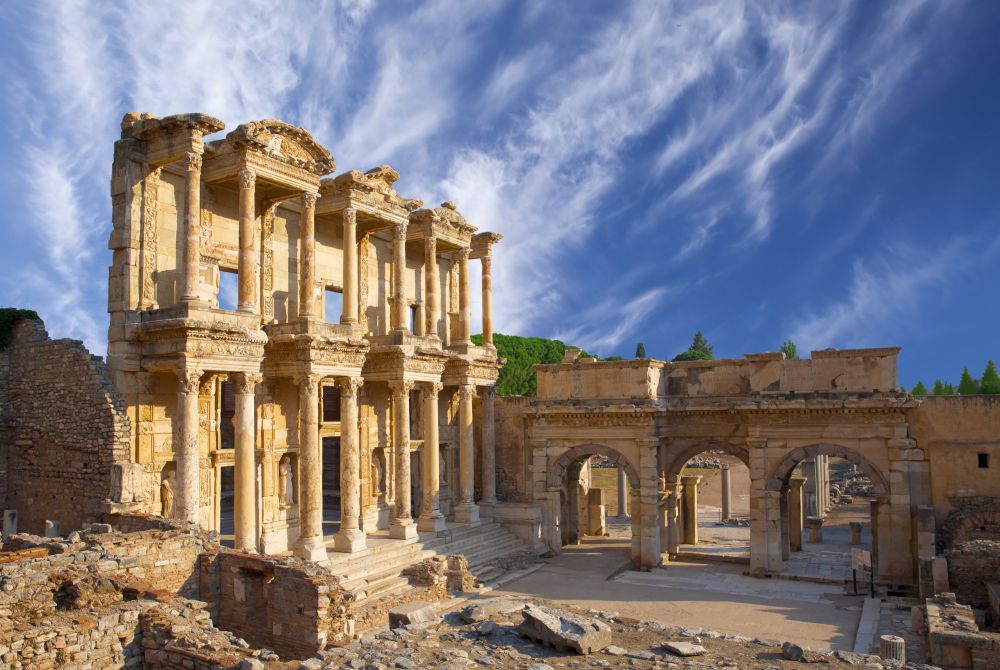

The ancient city of Ephesus, once a flourishing hub on the coast of Ionia, is a testament to the grandeur of classical antiquity. Among its most iconic structures is the Library of Celsus, constructed to serve as both a monumental tomb for Tiberius Julius Celsus Polemaeanus and a sanctuary of knowledge. This remarkable edifice, completed in 135 AD by Celsus’ son, Gaius Julius Aquila, originally housed an impressive collection of scrolls and stood as a symbol of the intellectual wealth of Ephesus.
Tourism in Ephesus can be traced back to the period of the Grand Tour in the 18th century when affluent Europeans would trek across notable cultural and historical sites in the Mediterranean. However, it was the excavations that commenced in the 19th century, led initially by British archaeologist John Turtle Wood and later by Austrian archaeologists, that sparked a surge in the site’s popularity, unveiling to the modern world the splendors of ancient Ephesus.
As discoveries continued into the 20th and 21st centuries, Ephesus emerged as one of the most significant archaeological sites, drawing scholars and tourists alike. The restoration of the Library of Celsus, revealing its ornate façade, has played a pivotal role in Ephesus' appeal. The library is especially celebrated for its impressive architecture and the intricate sculptures that adorn its exterior.
Today, the ancient city of Ephesus is a UNESCO World Heritage Site, a status it attained in 2015, further solidifying its allure for cultural and historical tourism. Visitors flock to witness the grandeur of the Library of Celsus, along with other notable landmarks such as the Temple of Artemis and the Ephesus Theatre. Modern trends in tourism see a growing inclination towards experiential and educational travel, with tourists seeking immersive experiences that connect them with the history and culture of the destinations they visit.
The rise of digital and social media has also impacted how modern tourists engage with Ephesus. Augmented reality tours offer an innovative layer of interaction, as visitors can envision the ancient city in its full glory through virtual reconstructions. Additionally, the proliferation of travel blogs and social media posts has amplified the reach of Ephesus, inspiring a new generation of travelers to explore its historic pathways.
In response to the rise in tourism and its associated challenges, there has been a concerted effort to promote sustainable tourism practices in Ephersus. This includes measures to preserve the site’s integrity while accommodating the needs of the modern traveler. Efforts to limit environmental impact, regulate visitor numbers, provide educational resources, and encourage the involvement of local communities are all part of the strategy to sustain Ephesus as a cherished destination for generations to come.
The Library of Celsus in Ephesus not only endures as a monument to the ancient world but also as an emblem of the evolving landscape of tourism. Its history and the ongoing dedication to its preservation and accessibility are integral to understanding both the past and future of tourism in this storied region of Turkey.